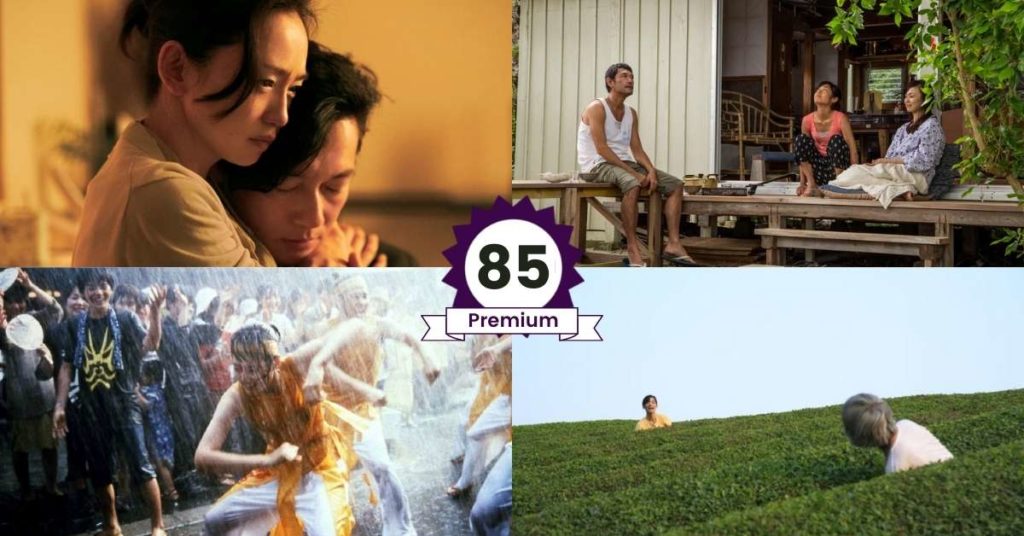Naomi Kawase is one of the most prolific women directors in international cinema and a multiple award winner at the Cannes film festival. Yet her films have rarely been given the critical attention they deserve. In this episode, we look at her latest film True Mothers, re-visit the divisive Still the Water, and discuss other highlights from her filmography.
This episode is a Seventh Row members exclusive, as are all episodes older than six months. Click here to become a member.

This episode features Editor-in-Chief Alex Heeney, Executive Editor Orla Smith, Associate Editor Brett Pardy, and special guest Milly Gribben.
True Mothers (2020)
True Mothers is the rare story of an adoption told from two perspectives and in two parts: first, the adoptive mother, Satoko (Hiromi Nagasaku), and then, the birth mother, Hikari (Aju Makita). Both women’s stories start before their son was born, and both women’s stories continue well after, until they meet again. Because Hikari got pregnant too young, at 14, her family is ashamed of her, attempting to hide the pregnancy altogether, and then expecting her to get over the traumatic separation from her child immediately. By contrast, Atoko was unable to get pregnant due to her husband’s infertility, a source of such shame for him that he suggests she consider divorcing him on learning of his problem. Their inability to get pregnant is a source of shame for both of them.
Read the rest of Alex’s review
Films discussed on this episode:
True Mothers is available virtually in the United States and Canada through Film Movement. It will be released on April 16 on Curzon Home Cinema in the UK.
The Mourning Forest (2007) is available to stream in the UK on Mubi.
Still the Water (2014) is available on VOD in the UK and to stream in the UK on Mubi.
Sweet Bean (2015) is available on VOD and to stream in Canada on Tubi, in the US on Hoopla, Kanopy, and Mubi, and in the UK on Mubi and BFI Player
Radiance (2017) is available to buy and rent on Vimeo on Demand in Canada. It is also streaming on Mubi in Canada.
Vision (2018) is available as a DVD import with English subtitles under its French title Voyage à Yoshino.
Show Notes
- View Milly’s portfolio of work
- True Mothers received three votes in our best of TIFF 2020 poll. See the other choices.
- True Mothers was also a selection on our list of the best 2021 films we’ve already seen. Check out the full list.
- Read Lindsay Pugh’s review of Sweet Bean and rebuttal of a terrible review on her website Woman in Revolt
- Watch Naomi Kawase’s TED Talk on her approach to cinema
- Listen to our podcast episode on our newest ebook, In Their Own Words: Fiction Directors
- Purchase your copy of In Their Own Words: Fiction Directors now at https://theirownwords.ca
[fusebox_transcript]

